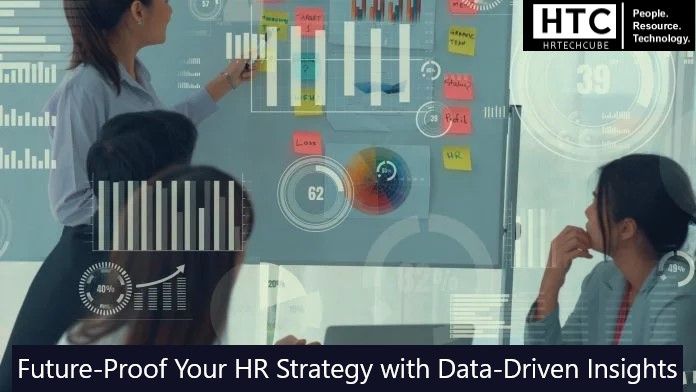In today's fast-evolving business landscape, HR leaders must embrace data-driven insights to build a more resilient and efficient workforce. By leveraging analytics and artificial intelligence (AI), companies can optimize decision-making, enhance employee engagement, and drive long-term success. A strong HR strategy with data-driven insights allows organizations to adapt to market changes while improving workforce productivity.
Table of Contents
- Introduction
- The Importance of Data-Driven HR Strategy
- Key Insights for Future-Proofing Your HR Strategy
- Leveraging Technology for Smarter HR Decisions
- Conclusion
1. Introduction
Traditional HR practices are evolving rapidly, and businesses must integrate data-driven approaches to stay ahead. From recruitment to performance management, organizations can make smarter decisions by analyzing workforce trends and employee behaviors. Future-proof your HR strategy by harnessing the power of AI, predictive analytics, and workforce data.
2. The Importance of Data-Driven HR Strategy
A data-driven HR approach helps organizations make well-informed decisions that improve efficiency, reduce costs, and enhance employee satisfaction. Key benefits include:
- Enhanced Talent Acquisition: AI-driven tools assess candidate suitability, reducing bias and improving hiring quality.
- Workforce Planning: Predictive analytics identify skill gaps and workforce trends, ensuring companies are prepared for future demands.
- Employee Engagement: Real-time feedback tools help HR teams measure employee sentiment and improve workplace culture.
- Performance Optimization: Data insights allow for personalized career development, increasing retention and productivity.
3. Key Insights for Future-Proofing Your HR Strategy
To remain competitive, organizations should focus on:
- Real-Time Workforce Analytics: Tracking employee performance and engagement through data-driven dashboards enables proactive HR decision-making.
- AI-Powered HR Automation: Automating repetitive HR tasks improves efficiency and allows HR professionals to focus on strategic initiatives.
- Personalized Learning & Development: Leveraging AI-driven recommendations ensures employees receive relevant training, fostering continuous growth.
- Diversity and Inclusion Analytics: Measuring diversity metrics helps companies create more inclusive workplaces and drive equitable hiring practices.
4. Leveraging Technology for Smarter HR Decisions
HR technology is revolutionizing the way businesses manage talent and drive engagement. Some key technological advancements include:
- AI-Based Predictive Analytics: Forecasting employee turnover and identifying potential leadership candidates enhances workforce stability.
- HR Chatbots & Virtual Assistants: AI-driven tools streamline HR processes, providing instant support to employees.
- Cloud-Based HR Systems: Centralized HR platforms improve collaboration, data accuracy, and strategic planning.
For More Info: https://hrtechcube.com/hr-strategy-with-data-driven-insights/
5. Conclusion
A strong HR strategy with data-driven insights is essential for organizations aiming to stay competitive in a rapidly changing workforce landscape. By integrating AI, analytics, and automation, HR leaders can make more strategic decisions that drive employee engagement and business success. Future-proof your HR strategy by embracing innovation and leveraging workforce data to enhance productivity and long-term growth.




